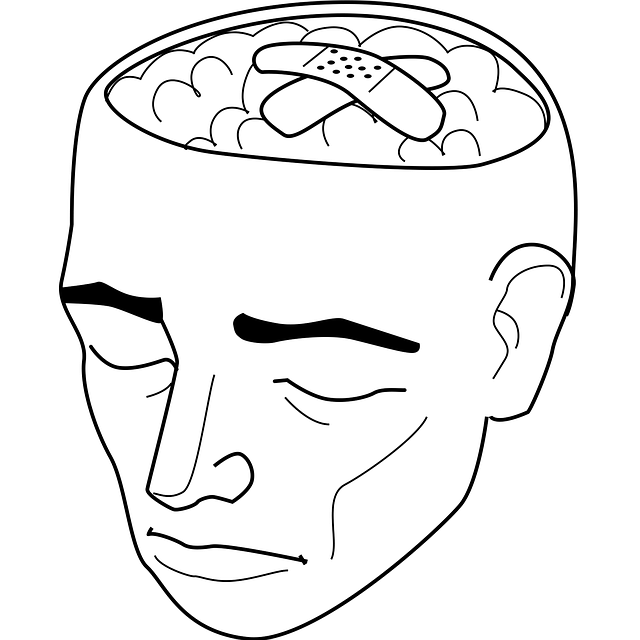Englewood Functional Neurological Disorder Therapy (EFNDT) offers a unique approach to managing neurological disorders by focusing on building resilience through its Resilient Factor Model (RFM). This holistic program combines tailored exercises, self-awareness practices, and stress reduction techniques to empower individuals to cope with daily stressors, improve relationships, and adapt to challenges. Measuring progress is crucial for adjusting the RFM framework, incorporating compassion cultivation and cultural sensitivity, ensuring a dynamic and effective therapy experience aligned with societal advancements in mental health policies.
Resilience is a key component in overcoming challenges, especially for individuals with functional neurological disorders (FND). One effective framework, RFM (Resources, Factors, and Methods), offers a holistic approach to building resilience. This article explores how Englewood Functional Neurological Disorder Therapy utilizes RFM to enhance patients’ coping mechanisms. We’ll delve into practical strategies for implementing resilience exercises, measuring progress, and tailoring the RFM framework for optimal results. Discover how this integrated method empowers individuals to navigate their disorders with greater strength and adaptability.
- Understanding RFM and Its Role in Resilience Building
- Englewood Functional Neurological Disorder Therapy: A Holistic Approach
- Implementing Resilience Exercises: Strategies for Success
- Measuring Progress and Adjusting the RFM Framework
Understanding RFM and Its Role in Resilience Building

Resilience is a vital asset for individuals navigating life’s challenges, and Englewood Functional Neurological Disorder Therapy (EFNDT) recognizes this by integrating Resilient Factor Model (RFM) into their therapeutic approaches. RFM is a framework designed to identify and foster resilience, especially in those with neurological disorders. It goes beyond traditional therapy by considering not just the symptoms but also the individual’s capacity to adapt and bounce back from stressful situations.
By employing RFM, EFNDT aims to enhance clients’ ability to cope with daily stressors and improve their overall well-being. This therapeutic model encourages individuals to develop effective coping strategies, build social skills, and cultivate empathy—all essential components of resilience. Through specialized exercises and techniques, patients learn to regulate emotions, strengthen relationships, and navigate complex situations with enhanced adaptability, ultimately empowering them to lead fulfilling lives despite the challenges they face.
Englewood Functional Neurological Disorder Therapy: A Holistic Approach

Englewood Functional Neurological Disorder Therapy offers a holistic approach to healing and resilience building. This method recognizes the profound connection between mental, emotional, and physical well-being, particularly in managing conditions like neurological disorders. Through a range of tailored exercises, clients develop self-awareness exercises that empower them to navigate life’s challenges with enhanced coping mechanisms. By integrating stress reduction methods into their routines, individuals can mitigate symptoms associated with anxiety and depression, fostering a sense of calm and control.
The therapy also provides trauma support services, addressing the root causes of distress and promoting emotional resilience. This comprehensive strategy not only alleviates immediate symptoms but also equips individuals with lifelong skills to build mental fortitude. By combining these approaches, Englewood Functional Neurological Disorder Therapy paves the way for profound personal growth and improved quality of life.
Implementing Resilience Exercises: Strategies for Success

Implementing Resilience Exercises requires a strategic approach tailored to individual needs and cultural sensitivities, especially when addressing conditions like Englewood Functional Neurological Disorder Therapy. A successful strategy involves creating a safe and supportive environment where participants feel empowered to explore and develop coping skills. This includes incorporating diverse techniques that promote emotional well-being, such as mindfulness practices, cognitive reframing, and stress management tools.
For optimal results, these exercises should be integrated into a comprehensive program that considers personal histories and cultural backgrounds. Healthcare providers play a pivotal role in guiding individuals through the process, offering encouragement, and teaching effective strategies for navigating challenges. By fostering a sense of agency and providing tailored support, resilience-building exercises can empower individuals to lead more fulfilling lives despite adversity.
Measuring Progress and Adjusting the RFM Framework

Measuring progress is a vital aspect of the RFM framework, allowing practitioners to assess the effectiveness of resilience-building exercises over time. This process involves regularly evaluating participants’ functional abilities, emotional responses, and overall well-being. By tracking improvements or areas that still require support, therapists can tailor their approach for each individual. For instance, through regular assessments, one might observe enhanced coping mechanisms in individuals with Englewood Functional Neurological Disorder (EFND), enabling them to navigate challenging situations more adaptively.
Adjusting the RFM framework is an iterative process that considers cultural sensitivity and mental healthcare’s evolving landscape. Incorporating Compassion Cultivation Practices (CCP) and addressing Cultural Sensitivity in Mental Healthcare Practice can enrich therapy sessions, ensuring inclusivity and effectiveness. Additionally, staying informed about Mental Health Policy Analysis and Advocacy ensures that the framework aligns with broader societal advancements and supports individuals effectively within their community context.
The implementation of RFM (Resilience, Flexibility, and Mobility) exercises, as exemplified by Englewood Functional Neurological Disorder Therapy, offers a holistic approach to building resilience. By combining targeted movements with mindfulness practices, this framework equips individuals with the tools to navigate life’s challenges more effectively. Through consistent practice and tailored adjustments based on measured progress, one can enhance their overall well-being and adaptability. Embracing RFM not only empowers folks with neurological disorders but also fosters a sense of agency in managing symptoms and improving quality of life.














